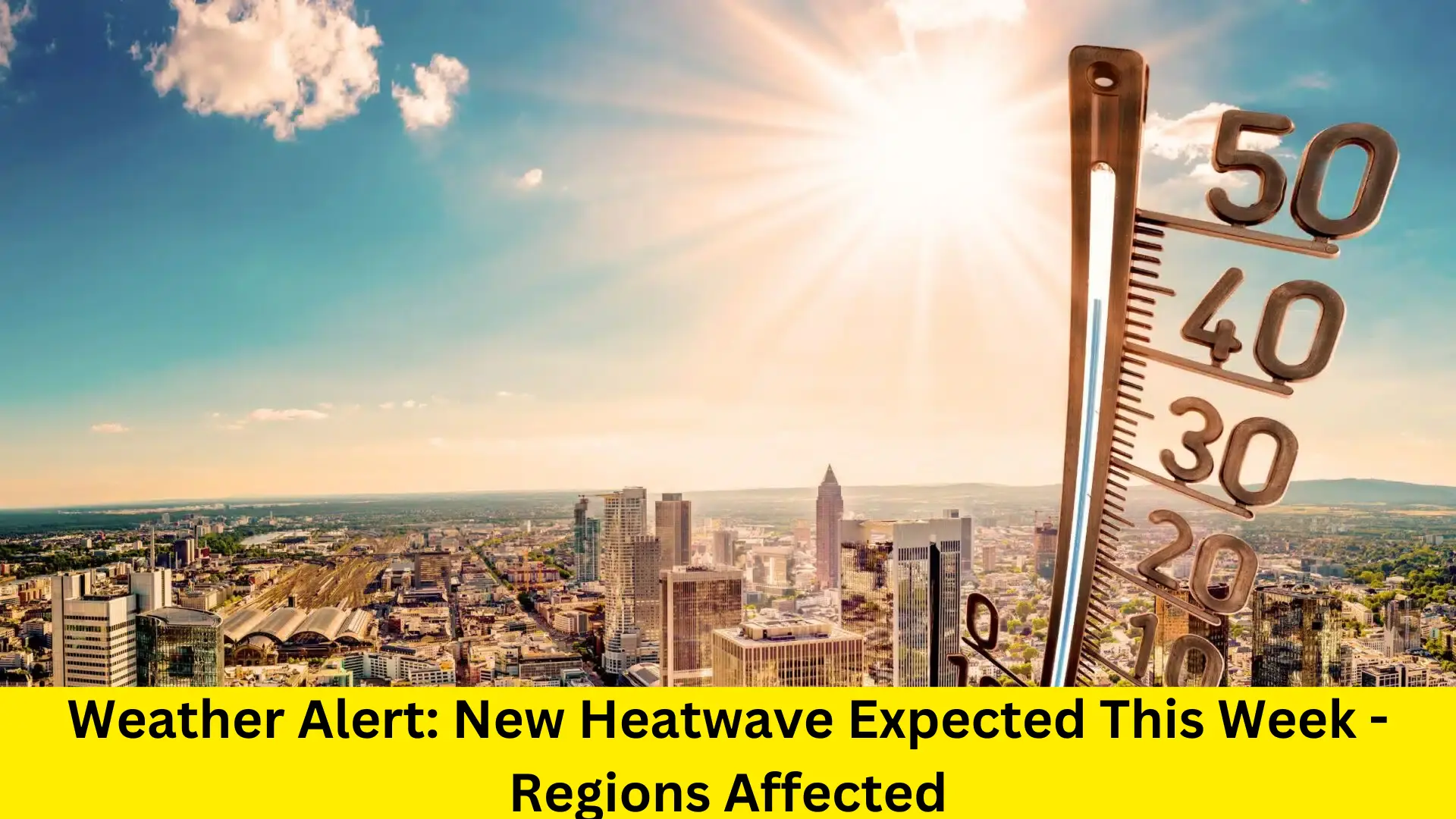Weather Alert: New Heatwave Expected This Week – Regions Affected

The scorching summer heat is set to intensify as meteorologists predict the arrival of a new heatwave this week. As temperatures rise, it is crucial to stay informed about the regions that will be most affected by this extreme weather event. In this article, we provide a comprehensive overview of the upcoming heatwave, including detailed information about the regions at risk, safety measures, and tips to stay cool during this challenging time.
Understanding Heatwaves
Heatwaves are prolonged periods of excessively hot weather, which may be accompanied by high humidity. These events can pose serious health risks, particularly for vulnerable populations such as the elderly, children, and individuals with pre-existing medical conditions. Heatwaves can also have significant impacts on infrastructure, agriculture, and the environment.
Regions Affected by the Upcoming Heatwave
Meteorologists have identified several regions that will be particularly affected by the upcoming heatwave. These areas are expected to experience temperatures significantly above the seasonal average, with some regions facing extreme heat conditions.
Southern Regions
The southern regions of the country are projected to bear the brunt of the heatwave. Cities such as Marseille, Nice, and Montpellier are expected to experience temperatures soaring above 35°C (95°F). Coastal areas, typically known for their moderate climate, will see an unusual spike in temperatures, prompting local authorities to issue heat advisories.
Central Regions
In the central regions, including cities like Lyon, Clermont-Ferrand, and Dijon, the heatwave will bring temperatures well above 30°C (86°F). These areas, which usually enjoy a milder summer, will face heightened risks of heat-related illnesses and infrastructure stress.
Western Regions
The western parts of the country, including Nantes, Bordeaux, and La Rochelle, are also forecasted to experience a significant rise in temperatures. These areas, typically moderated by Atlantic breezes, will see a departure from their usual weather patterns, leading to potential heat stress for residents and visitors alike.
Eastern Regions
The eastern regions, such as Strasbourg, Metz, and Nancy, will not be spared from the heatwave. Temperatures in these areas are expected to exceed 30°C (86°F), posing challenges for those unaccustomed to such intense heat. Local health services are preparing for an increase in heat-related emergencies.
Health Risks and Safety Measures
The health risks associated with heatwaves can be severe, ranging from heat exhaustion to life-threatening heatstroke. It is essential to take proactive measures to protect yourself and your loved ones during this period of extreme heat.
Stay Hydrated
One of the most critical steps to take during a heatwave is to stay hydrated. Drink plenty of water throughout the day, even if you do not feel thirsty. Avoid alcoholic and caffeinated beverages, as they can contribute to dehydration.
Stay Indoors During Peak Hours
Try to remain indoors during the hottest parts of the day, typically between 10 AM and 4 PM. If you need to be outside, seek shade whenever possible and avoid strenuous activities that can increase your risk of heat-related illnesses.
Use Air Conditioning and Fans
Ensure that your living space is well-ventilated and cool. Use air conditioning or fans to maintain a comfortable indoor temperature. If you do not have access to air conditioning, consider visiting public places such as shopping malls, libraries, or community centers that are air-conditioned.
Wear Light Clothing
Dress in lightweight, loose-fitting clothing made of breathable fabrics such as cotton. Light-colored clothing can help reflect heat, keeping you cooler.
Check on Vulnerable Individuals
Regularly check on elderly family members, neighbors, and those with medical conditions. Ensure they are staying cool and hydrated. Offer assistance if needed, and encourage them to follow heat safety guidelines.
Impact on Infrastructure and Agriculture
Heatwaves can have a profound impact on infrastructure and agriculture, leading to potential disruptions and economic losses.
Power Outages
Increased demand for electricity due to the widespread use of air conditioning can strain power grids, leading to potential power outages. Authorities are urging residents to conserve energy during peak hours to help prevent blackouts.
Transportation Disruptions
Extreme heat can cause roadways to buckle and railway tracks to warp, leading to transportation disruptions. Travelers are advised to check for updates on road and rail conditions and plan their journeys accordingly.
Agricultural Stress
The agricultural sector is particularly vulnerable to heatwaves. High temperatures can damage crops, reduce yields, and stress livestock. Farmers are encouraged to implement heat mitigation strategies, such as providing adequate water and shade for animals and employing irrigation techniques to protect crops.
Environmental Considerations
Heatwaves can also exacerbate environmental issues, such as air quality and wildfire risks.
Air Quality
High temperatures can lead to the formation of ground-level ozone, a harmful air pollutant. Poor air quality can aggravate respiratory conditions and pose health risks to the general population. Residents are advised to monitor air quality reports and limit outdoor activities when air quality is poor.
Wildfire Risks
Dry and hot conditions increase the risk of wildfires, particularly in areas with abundant vegetation. Authorities are on high alert and have implemented fire bans and other preventive measures. Residents in fire-prone areas should have an evacuation plan in place and stay informed about fire warnings and alerts.
Staying Informed
Staying informed about the latest weather forecasts and heatwave advisories is crucial during this period of extreme heat. We recommend following these tips to stay updated:
Weather Alerts
Sign up for weather alerts from reliable sources such as national meteorological services or weather apps. These alerts can provide timely information about heatwave conditions and safety recommendations.
Local News
Stay tuned to local news broadcasts for updates on the heatwave and its impact on your region. News outlets often provide valuable information about community resources, such as cooling centers and emergency services.
Social Media
Follow official social media accounts of local authorities and meteorological agencies for real-time updates and safety tips. Social media can be a valuable tool for staying connected and informed during extreme weather events.
Conclusion
The upcoming heatwave poses significant challenges for many regions across the country. By staying informed and taking proactive measures, we can mitigate the health risks and impacts associated with extreme heat. Remember to stay hydrated, avoid outdoor activities during peak hours, and check on vulnerable individuals. Stay safe and prepared during this period of intense heat.




